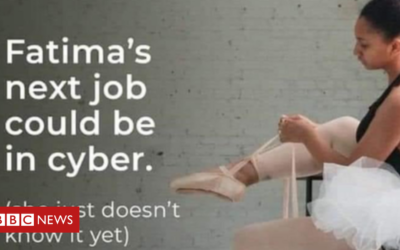Pregnant and looking for work. Video, 00:01:54Pregnant and looking for work
BBC Business News Articles
Creating fuel from thin air with artificial leaves
More Technology of Business
Covid: What is universal credit – and what other benefits are available?
The economic impact of the coronavirus outbreak means many thousands of people are losing their jobs – possibly for the first time.This has brought universal credit – which has often proved controversial – and other benefits into focus.Organising your finances after redundancy or a sudden drop in income, and claiming all the support available are crucial, but the process can be complicated.I have lost my job – what shall I do?The first step is to be aware of the state of your finances. Write a budget, know what income – if any – is coming in now and what bills are going out.The biggest monthly expense is probably the mortgage or rent. You may have long-forgotten insurance protection policies that cover some of the cost in the event of redundancy, so check.There may be help through the benefits system (see below), but you should talk to your landlord or mortgage provider if you are really struggling.Next, find out what you are entitled to claim in benefits or tax rebates. The list is long and sometimes complex, and will depend on your circumstances.What is universal credit?Universal credit is a benefit for working-age people, replacing six benefits and merging them into one payment. The old ones are:income support
income-based jobseeker’s allowance (except for some people with severe disabilities)
income-related employment and support allowance
housing benefit
child tax credit
working tax credit
You cannot make a new claim for these legacy benefits. Instead it must be for universal credit, which was designed to make claiming benefits simpler.You can claim on the phone – although there have been long delays during busy periods over the summer – or online.A single universal credit payment is paid directly into claimants’ bank accounts to cover the benefits for which they are eligible. It is paid every month in England and Wales, but there is the option of payment every two weeks in Scotland and Northern Ireland.It can be claimed when you are in or out of work.It is the benefit many people have heard of and consider claiming after losing a job – but it may not be appropriate or available for everyone. Claiming it can affect other benefits, and it is vital to get some advice – available for free – before applying.You may be able to claim a reduction in council tax when on universal credit, and get help with childcare costs. There is also support to pay the rent, which works in different ways across the UK. In time, there may also be assistance in paying the mortgage, although there are some strict criteria involved.In addition, the main benefit for anyone losing their job after a period in work is new-style jobseeker’s allowance (JSA).This is worth £58.90 a week, if you are under 25, or £74.35 a week if you are 25 or over.You can get this for up to six months and it will be paid into your bank, building society, or credit union account every two weeks. Unlike universal credit, your partner’s or spouse’s income will not affect your claim.You may be able to claim new-style JSA as well as universal credit.What are the concerns?Universal credit has been the source of considerable debate from the start.Firstly, it is complicated to work out exactly what you will receive. Some people, such as those with £16,000 or more in savings, will not be eligible at all.Others will find what they receive depends on their circumstances, including any income your family has, as well as housing and childcare costs. The government has made it more generous for some for a temporary period during the pandemic.One contentious issue is that it usually takes five weeks from the date of claiming to receiving a first payment, although you may be able to get an advance loan. An application for universal credit may put a stop to any tax credits you receive, even if it proves to be unsuccessful.Where can I go for help? There is a host of free guidance and advice available, including: The Money Navigator tool from the Money and Pensions Service relates to coronavirus-related money matters
The Turn2Us charity has a benefits calculator
Guidance is available from Citizens Advice
What if I can’t face doing this right now?Extensive research has revealed the links between financial difficulties and mental health issues.Support is available for both, and research also shows that ignoring any serious financial matters could make both factors worse.I have a job but my income has been hit as I’m isolating. What can I do?Systems of stay-at-home payments of £500 for those who are self-isolating are being set up across the UK. They will be for people in receipt of benefits and were announced at the same time as the government outlined bigger fines for those breaking isolation rules.Others can talk to their employers about sick pay or taking time off as holiday, for full pay.
How to get a job: Top bosses share their secrets
By Howard MustoeBusiness reporterMore jobs are being lost as Coronavirus lockdowns hit the economy. For the jobs that remain, the question is, how to stand out as an applicant?We ask nine top bosses for their thoughts.Holly Tucker, founder of Not On The High Street: ‘I want to be wowed’image copyrightHolly & CoWhen you apply for a job with Ms Tucker, founder of online marketplace Not On The High Street, she’s looking for one thing: “Creativity.”She says: “I want to be wowed by the application, whatever the role. I want to see the care, attention to detail and creativity in their application that I will want to see from them in their job every day.”She suggests a handwritten letter or an imaginative design as a good starting place. “Some of my favourite CVs have gone the extra mile and showcased their work within their application and not just told me about it. Are you a video editor? Then send me a video CV. Are you an animator? Animate it! Are you a copywriter? Be bold and rewrite some of the brand’s copy and show them how it should be!”Jacqueline Gold, chief executive of Ann Summers: ‘Stay connected’image copyrightGetty ImagesMs Gold says you should keep in touch with people in your industry. If you don’t know anyone in your chosen field, find someone you admire and drop them a line. Get them chatting through bringing up a common interest. That’s because when she wants to recruit someone, she asks her team who they can recommend.”If you can stay connected with those people you admire in your current or previous businesses, when they do recruit, they will recommend good people they know,” she says. “Good people know good people.”She says she understands things are currently very tough.”This can knock a lot of people’s confidence, this period. Send yourself an email outlining all the things you’ve achieved in your career. Then, when you go to an important meeting or interview, if you can read back this email to yourself that highlights all the things you have done in your career, it’s amazing how powerful that is. It’s a real confidence booster.”Claire Valoti, vice-president International at Snap Inc: ‘Ask why’image copyrightSNapIf you keep getting rejection emails, ask them why, says Ms Valoti, a boss at social media company Snap.”Not everyone is going to give you feedback, but some will. The important thing is to figure out what’s not working and how you can better sell yourself.””Be bold,” she says. Ask a recruiter or someone in your industry, since job applications and interviews are things at which you can improve, she recommends.Robert Walters, chief executive of recruiter Robert Walters: ‘Be confident’image copyrightDimitri Djuric”I always look for confidence and strong social and communication skills,” says Mr Walters, who founded his own recruitment firm. “Even in today’s more digital world, business is about face-to-face contact and building relationships.”If you are struggling to find a job you want, there are other ways of picking up skills, he suggests.”For me personally, I am also impressed by individuals who are prepared to give up their time when perhaps not working, to help out in the charitable sector, for example, which in tough times desperately needs support. “A commitment to learning and development is also something I look for.”Ann Francke, chief executive of the Chartered Management Institute: ‘Provide examples’image copyrightTom Stockill”I tend to look for people who can provide examples of how they’ve solved critical issues under pressure,” says management supremo Ann Francke. “And occasions where they have gone above and beyond.”Not everyone will have managed to find work experience in their chosen industry, she says. Her tip is to try “affordable online courses or volunteering” as good alternatives, and to be creative at showing how you’ve picked up skills. “Managers will be more interested than you might think in a Saturday bartending job, for example, as it indicates experience in customer service, supplier or client handling, and effective teamwork.”She echoes what many bosses told the BBC about the worst months of 2020: “Of course it is OK to have had an unproductive lockdown – everyone was facing challenges and stresses that were unprecedented in recent memory.” That said, it is not too late to add new skills now, she says.TS Anil, chief executive of Monzo Bank: ‘Keep busy’image copyrightMonzoResearching the company you want to work for and what it may be looking for is a must, says Mr Anil, another common theme in the BBC’s interviews.”At Monzo, we’re focused on innovating and improving banking for everyone. We want to find people who have the same sense of purpose and drive for what we do. That’s what can make you stand out.”For those stuck on furlough or shielding, he advocates keeping occupied. “Keeping busy with a hobby or through learning a new skill at this time can be good for your self-worth and mental health.”Like Ms Valoti at Snap, Mr Anil suggests getting someone to look at your job applications for you. “A fresh set of eyes can really help.”Simone Rossi, chief executive of energy firm EDF: ‘Research the company’image copyrightGeoff and Tordis PagottoWhile filling out endless applications can become tedious, it’s unwise to turn your job search into a production line, advises energy boss Mr Rossi.”Do take the time to personalise each application. Research the company, its goals and objectives, and then demonstrate what you can offer to help them achieve it. “Hiring managers can often tell a template application that’s been sent to lots of companies.”Mark Evans, chief executive at phone company O2: ‘Impress us with drive’image copyrightO2Mr Evans says that for him, drive is the key thing. If you are at the start of your career, that could be for anything.”I’m interested in graduates and apprentices who impress us with their drive – and that could be for the environment, engineering, technology or sport. “So many fields can teach us the positive attributes we need to succeed in our roles – team work, determination, agility and critical thinking. All of this is invaluable experience that companies value.”Waterstones chief executive James Daunt: ‘Be prepared to start at the bottom’Mr Daunt says having work experience, even if it is not relevant to the field in which you want to work, is still very important. He suggests a part-time job in a shop or in a pub can he helpful for people new to the workplace, to show their “stamina and work ethic”. “If you don’t have experience, then you need to get it and that may mean starting at the bottom. “I put great emphasis on character. Once someone is working for us, we can teach them. We want the raw material we can work with.”Related TopicsUK economyUnemployment in the UKEconomicsEmploymentMore on this story
Foxconn investment falls short of Trump promise
Foxconn Technology Group’s investments in the US have fallen short of promises made in 2017, when US President Donald Trump hailed the firm’s promises to build a factory as a sign of America’s manufacturing revival.Politicians had said the deal could eventually generate 13,000 new jobs.But it has brought fewer than 300 jobs so far – well below initial targets, Wisconsin officials have said.Foxconn had already said it was changing its plans for the plant.Wisconsin officials identified the job numbers to date in a letter denying Foxconn tax breaks, which the state awarded to the firm, a major Apple supplier, as part of the 2017 deal. The incentives were conditional on the firm meeting certain investment and job creation goals and generated significant controversy in Wisconsin, an important state in the US electoral calculus.The move by state officials to withhold the tax breaks comes just weeks before voters in the US head to the polls to decide if Mr Trump deserves a second term as president.Trump-backed US factory ‘reconsidered’
US’s Foxconn subsidies stir debate
Mr Trump, whose campaign slogan in 2016 was “Make America Great Again”, has sought to present his time in office as a boon for the US economy.But even before the economic collapse triggered by the pandemic, employment in the manufacturing sector had remained relatively flat.Democrats in Wisconsin seized on the figures as further proof of deal-making gone awry, noting that the state had spent $1bn supporting the project.”This cements Foxconn’s legacy as one of broken promises, a lack of transparency and a complete failure to create jobs,” said Wisconsin State Representative Gordon Hintz, a leader of Democrats in the state and a critic of the project. “Republican politicians should be held accountable.”
Harvester owner consulting on job cuts
Mitchells & Butlers, the pubs and restaurants group, has begun redundancy consultations with a number of staff as it struggles with the impact of the coronavirus pandemic. M&B, whose chains include Harvester and All Bar One, has about 1,700 pubs and restaurants and 44,000 employees.It has not yet disclosed how many jobs are at risk. A spokesperson for the company described it as “a difficult and regrettable decision”.M&B would “seek to redeploy affected staff wherever possible”, the spokesperson added.”Our industry is operating in exceptionally challenging and uncertain circumstances. “While we have worked incredibly hard to make sites Covid-19 secure and keep staff and customers safe, we are facing significant difficulties from the recently introduced 10pm curfew for pubs, bars and restaurants, new enforced closures and tapering government support that doesn’t go far enough.”Trading uncertaintyM&B’s spokesperson also called for further government support for the hospitality sector. “With trading restrictions and uncertainty likely to continue for the foreseeable future, we strongly urge the government to step up the level of support it is offering to an industry which has been repeatedly singled out and taken the full brunt of restrictions.” Other well-known brands in the M&B stable include Toby Carvery and O’Neill’s.The move comes after warnings by the hospitality industry that the new coronavirus restrictions will come as a huge blow to bars and restaurants across much of England.Bars and pubs in Liverpool have been instructed to close from Wednesday and will receive financial support.But venues in “tier 2” areas, including large parts of the North and Midlands, will lose custom, with households no longer allowed to mix indoors.Trade body the Night Time Industries Association is pressing for a judicial review of the restrictions.
Bars and restaurants 'reaching point of no return'
Covid: 'I don't want them to take my cab'
They want lenders to give them more breathing space, and for the Financial Conduct Authority (FCA) to intervene. The regulator has issued guidance on motor finance, insisting on flexibility and “sustainable” repayments, but it doesn’t cover business agreements. Separately, loans of more than £25,000 are not regulated.
Downing Street joins criticism of 'crass' job ad
Cavern Club and LSO get share of £257m culture fund
Nobel: US auction theorists win Economics Prize
The prize has been won in the past by economists including Paul Krugman and Milton Friedman, and last year was won by poverty-fighting couple Abhijit Banerjee and Esther Duflo.










